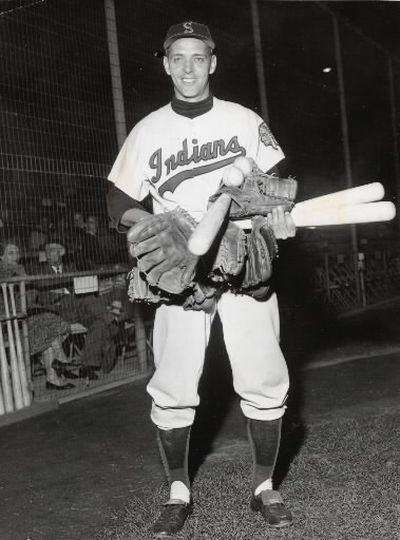Ex-Indian Tony Roig dies at age 81
Fans’ favorite called area his home since the 1950s

Tony Roig, whose half-century in professional baseball included a prominent role with Spokane’s first Pacific Coast League teams, died Wednesday at his home in Liberty Lake. He had been ill for several months. He was 81.
As a player, Roig put in 21 seasons, including parts of three years in the major leagues with the original Washington Senators, three years with the Spokane Indians and six in Japan. The versatile infielder later managed in the minor leagues and spent nearly 30 years as a scout. He had made his home in this area since the late 1950s.
Born Anton Ambrose Roig as one of nine children in New Orleans, he signed his first pro contract as a 19-year-old pitcher, with the Philadelphia Phillies in 1948. Two years later, he caught on with Washington’s farm system. He played second base, third base, shortstop and outfield while hitting .327 for Rome (Ga.) of the Georgia-Alabama League then finished the year with Chattanooga of the Southern Association.
After two years in the Army, Roig spent most of 1953 at Chattanooga, where he batted .303 and earned a call-up to the Senators. He divided the next four years between Washington and the minor leagues. Shuffled back to Chattanooga for 1957, he hit .300. But an injury limited him to 73 games.
That fall, the Senators sold Roig to the Los Angeles Dodgers, who brought him and the PCL to town. He met and married his wife, Jackie, here. He became the only man to play for each of the city’s first three Coast League teams. On road trips, Roig, first baseman Jim Gentile, the brother battery of Norm and Larry Sherry and pitcher Rick Scott entertained their teammates as a back-of-the-bus singing group.
Reached at his home in Oklahoma, Gentile remembers Roig as “a great guy and a great teammate. He was one of the better guys that ever put a uniform on.”
Gentile, who left the Dodgers organization to become a slugging star for the 1960s Baltimore Orioles, wasn’t as confident about the singing. “We had a real good bunch of guys. Maybe our singing was good,” he said, “although beer was probably involved.”
Roig hit .282 in 1958 as the regular second baseman, .281 as the third baseman in 1959 and .278 with 16 home runs and 90 RBIs as the primary first baseman for the 1960 PCL champions. Although the hard-hitting 1960 club produced big-league standouts Willie Davis and Ron Fairly, fans chose Roig as the team’s most valuable player. On Sept. 8, he played all nine positions.
Drafted that winter by the Chicago White Sox, he came down with pneumonia in spring training and wound up at Chicago’s PCL affiliate in San Diego, where he played against Spokane during a 19-homer season.
The Sox sent Roig to Indianapolis of the American Association in 1962. Then he headed to Japan, where he met the long-ball expectations for Americans by hitting 126 home runs (1963-68) with the Pacific League’s Nishitetsu Lions and the Kintetsu Buffaloes. Jim Albright, a writer who bills himself as The Japanese Insider, named Roig to the starting lineup of his all-time team of foreign-born players.
In 1,234 U.S. minor-league games, Roig batted .278. He hit .212 in 76 major-league games.
He began his scouting career with Milwaukee in 1973. He managed Newark (N.J.) of the New York-Pennsylvania League (1975-76) and scouted for the California Angels before beginning a two-decade association with the Phillies as a scout and minor-league hitting instructor in 1981.
Roig threw out the first pitch in 2008, when the Spokane Indians celebrated 50 years in Avista Stadium, the ballpark built as the home of PCL play.
In the course of a half-century, Roig noticed considerable change in the game, particularly when it came to defensive play.
“Baseball has improved so much,” he said in a late 1980s interview. “Defense is so much better. A lot of it has to do with the fields, but there’s also much more instruction.”
Roig is survived by his wife and three adult children.